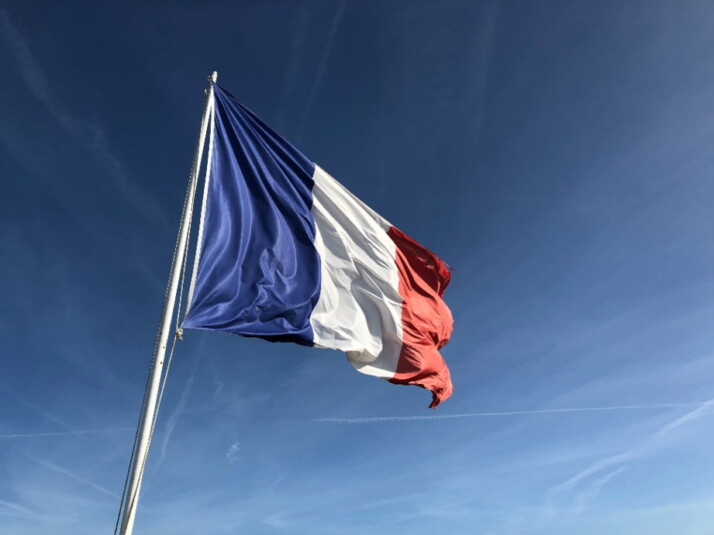The phrase “Liberté, Egalité, Fraternité” was a slogan designed to give hope to the French during the French Revolution. It was also seen as a symbol of France’s belief in equality and oneness — a point not often made in the French revolution itself. This article outlines the history of the slogan for the French Revolution and its significance today.
What Was the French Revolution?
The French Revolution began in 1789 and lasted for about 10 years until 1800. It was a profound social and political upheaval that shook the world regarding economics, religion, and even science.
It aimed to rethink the nature of political authority and radically alter the relationship between the rulers and those they controlled. Due to the advancement of its radical ideas, the French Revolution is frequently viewed as the prototype for the turbulent upheavals that followed.
What Was the Slogan for the French Revolution?
The slogan for the French Revolution was “Liberté, égalité, fraternité,” meaning “Liberty, Equality, Fraternity.” This popular slogan was coined during the time of the French Revolution based on modern democracies.
“Liberté” is freedom and indicates that everyone has the rights that they have come to expect. “Égalité” means equality to all citizens and that they should be treated as equals. “Fraternité” refers to showing kindness to others and being supportive.

Liberté, Égalité, Fraternité — What Does It Mean?
The French motto is translated to “liberty, equality, fraternity.” This slogan generally refers to the fundamental principles that characterize French society and democratic life.
A fundamental value in a democratic society is liberty. It is the freedom to live freely without repression or unreasonable restrictions from the government. The same goes for equality. In addition to treating one another equally, this also means that everyone is treated equally in the eyes of the law.
Although there was clearly a gender implication when the slogan was first used, fraternity is not about gender or social groups. It is about how we should all treat one another with kindness and support. It emphasizes solidarity at its core, where the people work together to maintain a free and fair society.
Historical Background of the Motto
Although the French established the phrase liberté, egalité, fraternité, the ideals it promoted were not new. It’s a very old principle that people should treat one another fairly and respectfully. And rulers should do the same for their citizens.
The ideals of liberté, equality, and fraternity were forged through the struggle during the French Revolution. It was when people there strove to throw off the burden of an oppressive monarchy. The first utterance of the slogan is still in debate.
However, Maximilien de Robespierre, a French statesman, is most often given credit for the phrase. He fought for the abolition of slavery and the right of all adult men to vote.
However, the term fraternité’s inclusion wasn’t universally praised. Because it is a masculine phrase, it excludes more than half of the population – especially women – from its definition of freedom.
Therefore, a journalist, Olympe de Gouges, created the Declaration of the Rights of Women in response to the inclusion of the term fraternité. Other slogans during the time of the French Revolution excluded this term to highlight the virtues of freedom.
What Does the French Revolution Slogan Mean Today?
The slogan for French Revolution, liberté, égalité, fraternité, is still in use today. And just as it did during the French Revolution, it continues to stand for the fight against inequality, divisiveness, and the abuse of power. However, the interpretation of the slogan has been revised as the French culture now is far more nuanced than it was back then.
Perhaps the most significant shift in meaning has been in the area of equality. For many individuals, the concept of “egalité” encompasses all forms of inequality, including racial, economic, geographic, and religious.
The evolution of this term reflects France’s historical events. It is all linked to colonization, the World Wars, and the emergence of extreme movements involving cultural or religious identity. They have all contributed to altering how liberté, égalité, and fraternité are understood and applied.
Conclusion
This article is meant to shed light on the past and present meaning of the slogan for the French Revolution. Following the motto, France was in a period of great political and social upheaval and chaos.
France became a republic, but many of the changes caused by the French Revolution were later reversed. In the present day, the slogan is viewed as a battle cry against social injustice rather than the uniting cry of the revolution itself.
Explore All Motto Generator Articles
Creative Slogan Ideas for Your Candle Business
Scented candles are the most popular way to decorate your home and display your comfort. If you’re planning on starting…
Unique Slogans & Quotes for Wedding
When you are throwing the wedding of your dreams, you’re bound to have a few visions and thoughts in the…
Creative Slogans for Blood Donation Campaign
Blood is the life force in all living beings. One person’s life can depend on this life force – hence…
A Guide to Creative Website Taglines & Slogans
A tagline is one of the most important ideas to consider if you want your website to gain traffic or…
Importance of Social Media Slogans With Examples
Most corporations try desperately to create the perfect name for their brand. The success of social media depends on how…
Slogan for Watch: Catchy, Cool, and Creative Ideas
Watch is a very popular and practical fashion accessory for both men and women. From high-end luxurious watches to reasonable…
